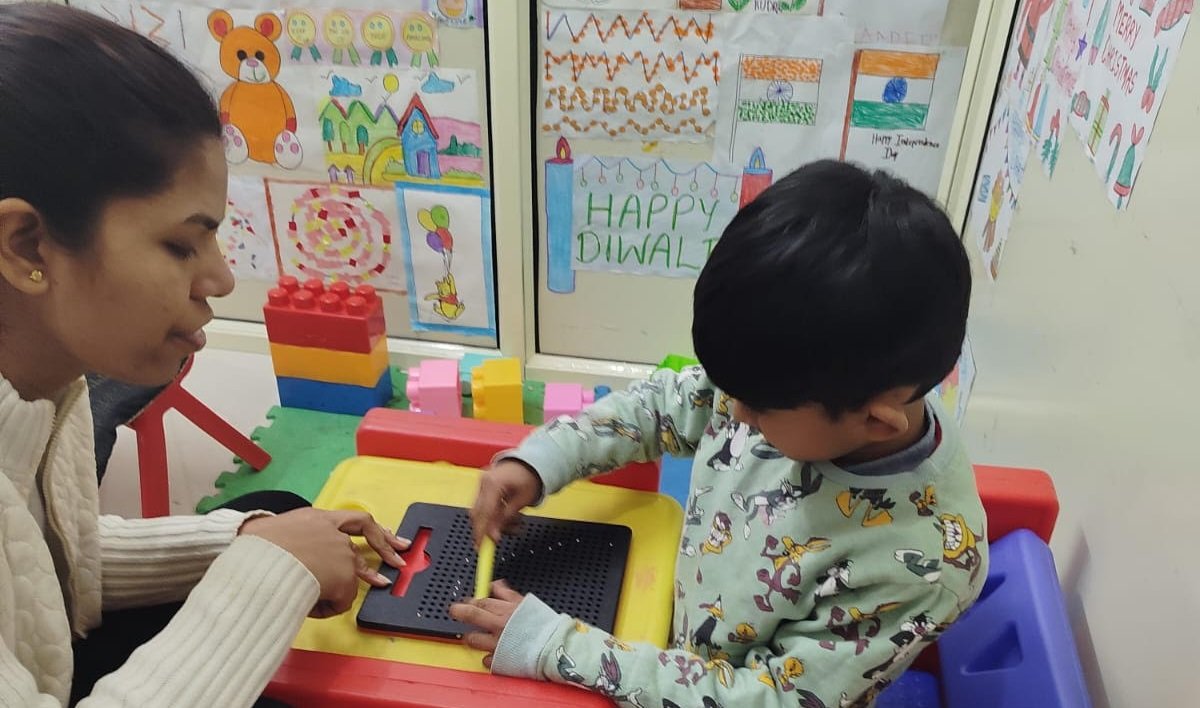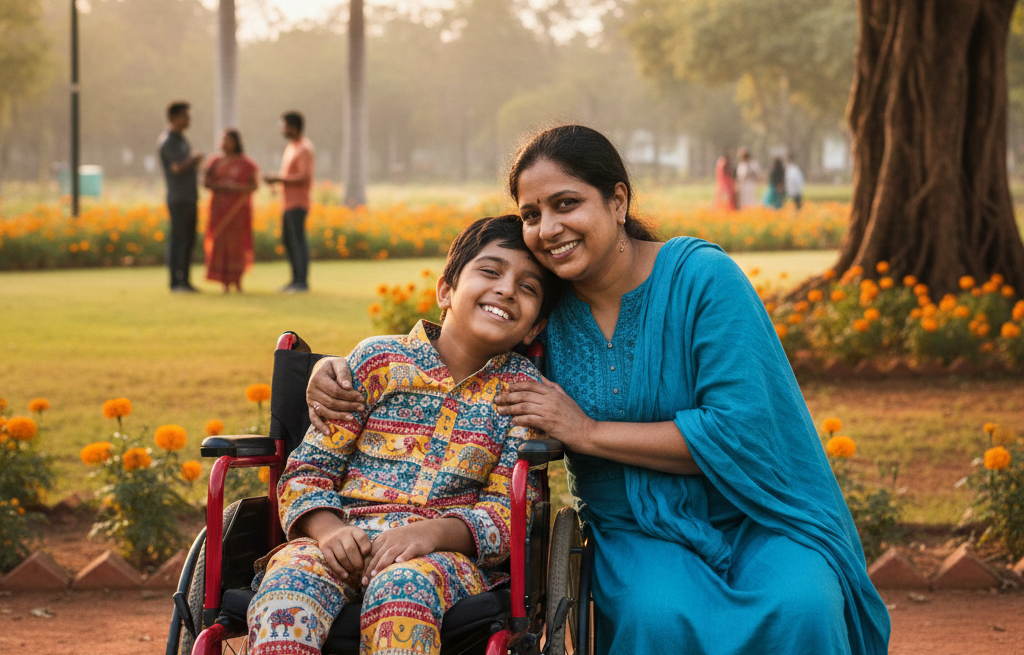
How Occupational Therapy Helps Special and Neurodiverse Children Lead Self-Dependent Lives
How Occupational Therapy Helps Special and Neurodiverse Children Lead Self-Dependent Lives

How Occupational Therapy Helps Special and Neurodiverse Children Lead Self-Dependent Lives

Occupational Therapy (OT) plays a essential role in helping such kids in bridging these developmental gaps. Through planned and structured, child-centric therapies and interventions, occupational therapists support children in learning Activities of Daily Living (ADLs).

Communication is not just about spoken words. It’s a beautiful interplay of gestures, expressions, and intentions that connect us with the world around us. For children with neurodevelopmental conditions, like Autism Spectrum Disorder (ASD), Attention Deficit Hyperactivity Disorder (ADHD), Down syndrome, or global developmental delays, this connection often begins with silence. Not by choice, but due to challenges in expressing themselves. These children experience the world through unique lenses, but when their ability to communicate is impaired, their world becomes

Understanding Autism: It’s a Condition, Not a Disease A common misperception regarding Autism Spectrum Disorder (ASD) is that it’s a disease that must be “cured.” However, autism is actually a neurodevelopmental disorder rather than a disease. Children with autism can flourish, learn, and acquire abilities that enable them to navigate the world in their own special way with the correct direction, support, and interventions. Autism cannot be diagnosed during pregnancy, in contrast to certain other medical problems. However, potential symptoms might

In many Indian households, there’s a common scene that plays out quietly, sometimes over years — a child isn’t sitting up yet, doesn’t walk when others their age are running around, or keeps one hand clenched in a tight little fist. Initially, it’s brushed off with comments like “sab kuch time se hota hai” or “shaant nature ka baccha hai.” But when those missed milestones stack up, when walking, holding, even simple play becomes difficult — parents are left worried, confused, and alone with a diagnosis that sounds heavy: Cerebral Palsy.

If you’ve ever seen your child melt down in a supermarket aisle, scream because you gave them the “wrong” colour cup, or cling to you tightly during loud gatherings, you already know that emotional regulation is not just a developmental skill; it’s a daily survival skill for families. In Indian households, we often hear: “Itna sa baat hai, ro kyun rahe ho?” or “Chup raho, sab dekh rahe hain.” But emotions don’t switch off because adults want them to. Children

Every parent wants the best for their child-good health, vigorous growth, and a happy, confident future. So when a parent starts feeling that something is “a little different” in their child’s development, it can be emotionally heavy.

Is there an increase in autism in India? – Parents, physicians, educators, and other caregivers are increasingly asking this question. It is evident that more children in India and throughout the world are now being diagnosed with autism than in the past. The number is rising, according to clinics, therapeutic facilities, and special schools. However, the crucial question still stands: Is autism actually rising in India, or are we just more aware of it now? The argument stems from the

Most parents worry about speech, walking, or school readiness. But very few stop to think about something just as crucial—how their child’s eyes learn to work.
Let’s talk about it…